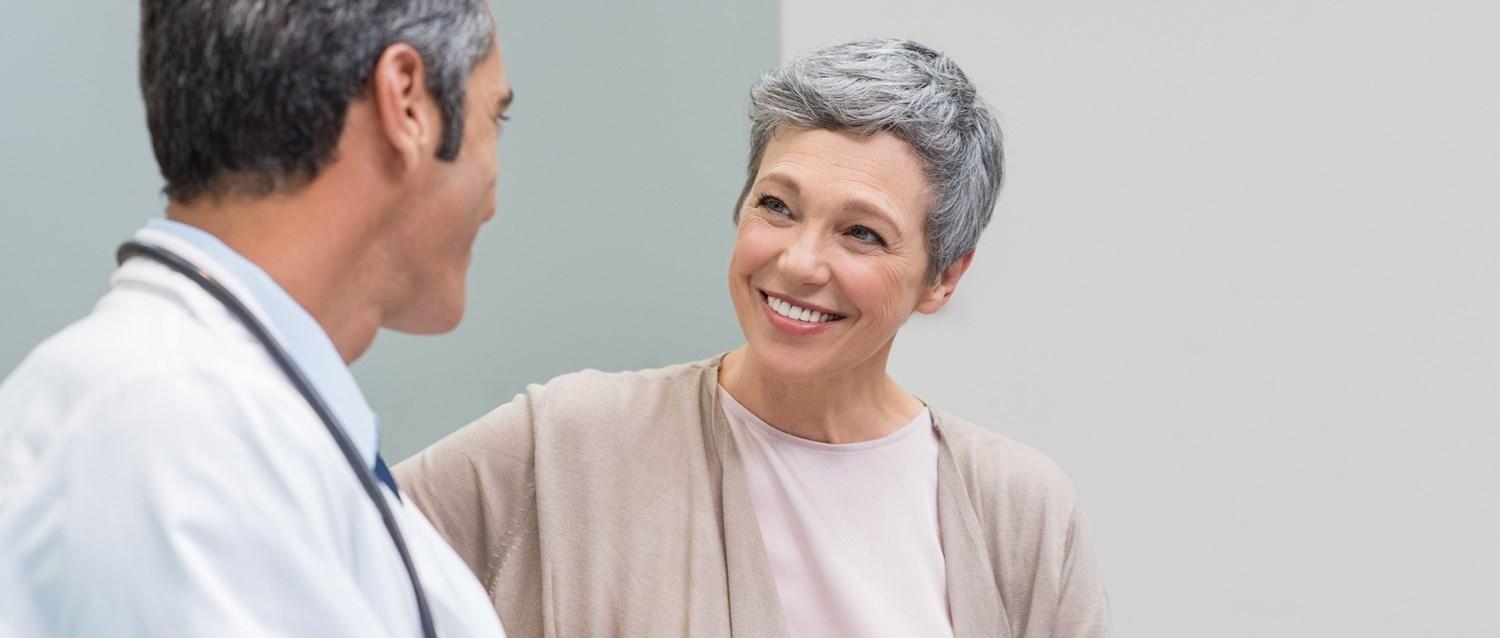
Vidéo : Comment savoir si vous êtes en train de vivre la ménopause ?
Peer reviewed by Dr Krishna Vakharia, MRCGPLast updated by Lydia SmithLast updated 18 May 2023
- TéléchargerTélécharger
- Partager
The menopause happens to every woman, but not necessarily in the same way. Our experts have answers to all the important questions, whatever stage you're at and whatever symptoms you're experiencing.
Dans cet article :
Playlist: Menopause Q&A
5 vidéos
How do you know you are going through the menopause?
Dr Sarah Jarvis MBE, FRCGP
How do you know you are going through the menopause?
Dr. Sarah Jarvis MBE, FRCGP

Qu'est-ce que la périménopause ?
Dr. Sarah Jarvis MBE, FRCGP

Do I need a blood test to diagnose menopause?
Dr. Sarah Jarvis MBE, FRCGP

Does menopause affect your sex life?
Dr. Sarah Jarvis MBE, FRCGP

Is it safe to take HRT?
Dr. Sarah Jarvis MBE, FRCGP
Poursuivre la lecture ci-dessous
How do you know you are going through the menopause?
The word for menopause comes from the Greek Menos Pausos or periods have paused or rather stopped. So the last day of your last period is the day technically you go through the menopause. But of course you don't know until a year later that was your last period. In the years coming up to the menopause you can start getting more irregular periods and you can start getting the symptoms of the menopause.
So hot flashes, mood swings, sometimes low mood even depression, vaginal dryness and so on. Some women go through all these without even noticing; they sail through it- menopause. For some women those menopausal symptoms can be really debilitating. The answer is technically you won't know until a year after your period stopped that you are menopausal because until then we say that it will be normal for you to have another period. But those hot flashes might give you a very good idea.
Sélection de patients pour Ménopause et THS

Santé des femmes
Faut-il faire un bilan de ménopause à 40 ans ?
Au Royaume-Uni, le Menopause All-Party Parliamentary Group (APPG) a proposé sept réformes de la politique de santé de la ménopause qu'il recommande aux députés de mettre en œuvre. L'une des principales recommandations est qu'un contrôle standard de la ménopause soit intégré au bilan de santé gratuit du NHS pour toutes les femmes de plus de 40 ans. Nous examinons ici si ce contrôle est nécessaire, ce qu'il impliquerait et pourquoi l'âge de 40 ans a été choisi.
par Amberley Davis

Santé des femmes
Ménopause
La ménopause est le moment où vos ovaires cessent de travailler pour produire un ovule chaque mois - elle survient 12 mois après vos dernières règles. La périménopause est la période pendant laquelle vos règles deviennent moins régulières et on dit que vous êtes en postménopause lorsque vos dernières règles remontent à plus de 12 mois et que cela n'est pas dû à l'arrêt de vos règles pour une autre raison telle que l'utilisation d'un contraceptif qui arrête vos règles.
par le Dr Hayley Willacy, FRCGP
Qu'est-ce que la périménopause ?
Every woman knows about the menopause but most women assume it just sort of happens. In fact sometimes it can creep up on you and sometimes it can reach up and start grabbing you. The perimenopause is the years running up to the menopause. The menopause technically is the day of your last period although we don't know that that's happened until a year later. The average age of menopause is about 52 and the perimenopause lasts about 4 years on average.
So most women start going through it in about their late forties, however, it can last up to a decade. What's happening around the perimenopause is the oestrogen levels are gradually dropping. So, your periods become less regular, they may become more erratic, and they may well become heavier. You may start to get hot flashes and night sweats, you may get vaginal dryness, mood swings and depressed mood. A small proportion of women in their perimenopause get really bad symptoms, so bad that they need, for instance, HRT to relieve their symptoms. The good news is, it doesn't go on forever.
Poursuivre la lecture ci-dessous
Do I need a blood test to diagnose menopause?
NICE-The National Institute for Health and Care Excellence says that if you are over 45 and you have menopausal symptoms including your periods stopping then your doctor can diagnose menopause without needing to do any blood tests at all.
If you are under the age of 40 and your periods stop, especially, if you have hot flashes and so on as well then your doctor should be doing 2 FSH blood tests separated in time, that's Follicle Simulating Hormone, to see if you are going through the menopause. Between the ages of 40 and 45, it slightly depends on your personal circumstances. But there is no point in doing that blood test if you are taking the combined oral contraceptive pill or a high dose progesterone contraception.
Does menopause affect your sex life?
There are lots of ways in which the menopause could have an impact on your sex life. First of all, you could suffer from vaginal dryness that’s caused by low estrogen levels can cause soreness, pain during sex as well as urine infections and vaginal infections.
Secondly, you can get a lot of hot flashes during the menopause which may interfere with your sleep, especially, if you are having night sweats too and being tired is never a great recipe for wanting to get cosy.
Thirdly, menopause can have an impact to your mood; you can get mood swings and possibly depression as a result of the menopause. And finally, yes, we think that the menopause or the changes in the hormones around the menopause may have a direct effect on your sex drive as well. However, if you talk to your doctor about how you can improve things say, if you got vaginal dryness and say you couldn’t stop yourself from suffering some of the physical consequences of menopause you may be able to get on track.
Poursuivre la lecture ci-dessous
Is it safe to take HRT?
Very much depends on what you mean by safe. Doctors don’t talk about safe, we talk about relative risks and benefits. Now we know on the one hand that the HRT is the most effective way of relieving hot flashes which can have a terrible impact on some women’s life around the menopause. But we also know it can increase your risk of breast cancer. However, we know lots more than we did few years ago.
So, for instance, taking HRT does not increase your risk of heart attacks, especially, if you take it around the time of the menopause. It can protect you against osteoporosis or thinning of the bones in later life. There may be an increased risk of ovarian cancer but it’s a very small increase in real terms. Taking oestrogen only HRT which only women who have had hysterectomy can take results in little or no increased risk of breast cancer but there is an increased risk of breast cancer if you take combined HRT.
However, that depends on the type of HRT and how long you take it for and once you’ve stopped taking it your risk does return back to normal. So, the evidence is there, it’s up to you to weigh up the risks and the benefits.
Historique de l'article
Les informations contenues dans cette page ont été évaluées par des cliniciens qualifiés.
Next review due: 18 May 2026
18 mai 2023 | Dernière version
28 Dec 2017 | Originally published
Auteur: :
Dr Sarah Jarvis MBE, FRCGP

Demandez, partagez, connectez-vous.
Parcourez les discussions, posez des questions et partagez vos expériences sur des centaines de sujets liés à la santé.

Vous ne vous sentez pas bien ?
Évaluez gratuitement vos symptômes en ligne